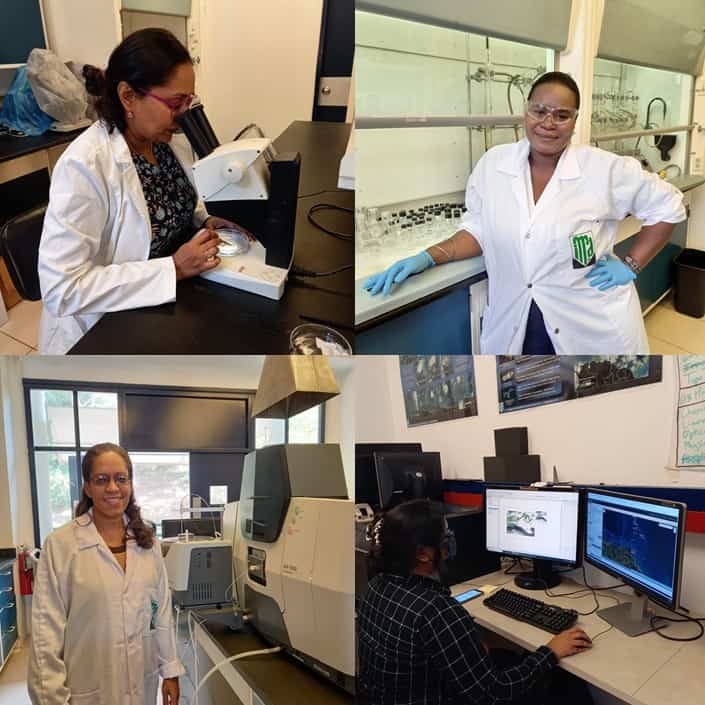For many countries, the participation of women and girls in science is still much of a dream waiting to be realized. This year the United Nations (UN) celebrates the 7th Annual International Day for Women and Girls in Science under the theme ‘Equity, Diversity and Inclusion: Water Unites Us’. With widespread discussion over the past years, women and girls around the globe often encounter many more gender barriers, even in the field of science, which hinders proper representation. Some barriers include limited access to education, gender discrimination and unequal pay. Thankfully though, some major strides have been made in fostering an environment of inclusivity for women. Increasingly, many organizations are employing ways to enhance the role of women in scientific research through capacity building as part of their commitment to the UN’s 2030 Sustainable Development Goal 5: Gender Equality.
Globally, women represent 33.3% of scientific researchers in a study conducted across 107 countries (UNESCO 2021). However, Trinidad and Tobago is one of the top 20 countries where gender parity exists, with 56% of researchers being female (UNESCO 2021). Of the five career fields measured, Natural Sciences, Engineering and Technology, Health and Welfare, Agricultural Sciences and Social Sciences, only Engineering and Technology had a higher number of males than females locally. Thanks to high accessibility to quality education from primary to tertiary levels, both boys and girls have opportunities to obtain a sound education and have a variety of choices regarding which field they choose to pursue.
According to the Millennium Development Goals Report (2014), gender parity was achieved for all levels of education in Trinidad and Tobago since 2009. However, in recent years, it has been observed that girls have been outnumbering and outperforming their male counterparts in written examinations such as the Caribbean Advanced Proficiency Examination (CAPE) and Caribbean Secondary Education Certificate (CSEC). Interestingly, recent studies which show that girls outperform boys academically, this has been identified as a challenge in Trinidad and Tobago’s National Development Strategy 2030. A peer-reviewed article ‘Male Underachievement in Education Across the Globe: A Shift in Paradigm for Gender Disparities Regarding Academic Achievement’ highlighted possible underlying challenges affecting male students including social identity development, the level of parental involvement, the school curriculum and perspectives of what it means to be masculine (Jackson et al. 2010). These complex issues must be explored in order to address and ameliorate the situation.

Representation of women in science is critical. Firstly, by neglecting female scientists, only half of the population is represented and an entire segment of the talent pool for development is ignored. Secondly, by including female scientists, the health care needs and medical diagnoses for women and children will improve as clinical trials and case studies expand to include these two important groups more frequently. According to a study reported by National Geographic (2014), for decades, scientists were unaware that cardiovascular symptoms presented differently in men and women. Additionally, it was also discovered that women have been prescribed the incorrect dosage of medications as these clinical trials were mainly focused on men. These instances drive home the need for women’s inclusion in science. This is critical as women also offer different perspectives that could foster innovation towards scientific advancement. Female inclusion will drive the scientific research agenda along different pathways that reflect the experiences of women in the world.
Including more women in scientific research enhances the process and validity of scientific research. It was discovered that even the physical presence of female scientists instead of males during experiments with lab animals produced different results. According to the McGill University study (2014), exposure to the scent of males and male-related stimuli increased the stress levels of the lab rodents. In response, the animals became more desensitised to pain when stressed. This was not observed when the lab animals were only exposed to female scents. Even knowing data as simple as this has the potential to transform methodologies and results of important experiments as many are conducted using lab animals.
So while the education of more females as scientists is important, the re-culturation of the processes and perspectives in the practice of scientific research remains an ongoing challenge.
Fortunately, at the Institute of Marine Affairs, there were always many hard working women who have contributed to the high calibre marine research conducted and have provided leadership in environmental policy development and sustainable resource management. Their ideas are limitless; from coral reef conservation, to coastal vulnerability assessment to maintaining IMA’s historic Marine Reference Collection, monitoring heavy metal concentrations in our environment, and recommending proper fisheries management strategies, to list but a few of the outstanding projects being spearheaded by the female researchers at the IMA. It is fascinating to ponder on the number of ideas and innovations that were put forward and published due to the presence of the female researchers. Moreover, I felt the theme for this year ‘Water Unites Us’ especially fitting as IMA’s research is centered on the ocean. Thus every researcher’s work is interconnected as it is ‘united by water’. This unifying factor highlights the collaborative and supportive role that researchers’ play as they contribute to the accomplishment of other projects. When working as a team, the chance for success is even greater!
As we commemorate this day of Women in Science we give thanks to all the women who contribute their valuable time and effort to improving our society and to the young girls inspired and driven to join the field in whichever way they desire. Happy International Day of Women and Girls in Science!





